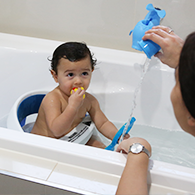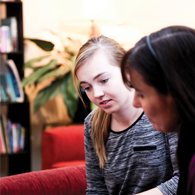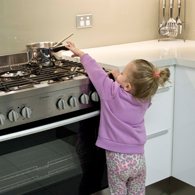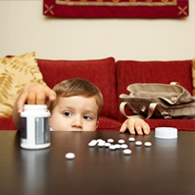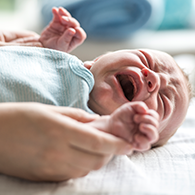COVID-19 - Caring for low risk COVID-19 positive children
What is COVID-19?
COVID-19 is a virus, so symptoms tend to be very similar to those caused by other common viruses that your child may have had.
The majority of children infected with COVID-19 only have mild symptoms. It is also common for children to test positive for the virus who have no symptoms at all, at any stage.
The most common symptoms to expect include fever, runny nose, sore throat, cough, diarrhoea and lethargy.
A small number of children have other symptoms such as tummy pain, chest pain, headache, body aches, breathing difficulties or a loss of taste or smell.
As with all viruses, your child is more at risk of needing additional care if they have other medical conditions, such as asthma, obesity, diabetes, inflammatory bowel disease or they are immuno-compromised.
Most children are able to be cared for at home by their parents or carers.
Caring for your child at home
- Dress your child in appropriate clothing, so that they are comfortable - not sweating or shivering.
- Give your child plenty of fluids to drink. They may not feel like drinking much so will need your help and encouragement.
- Encourage them to rest and not overdo it.
- Use paracetamol (Panadol) or ibuprofen (Nurofen), only if you think your child is in pain or appears uncomfortable with a fever. Do not give more of these medicines than is allowed in a 24-hour period, as this may be harmful for children (see instructions on the label).
- Watch your child for signs that their illness is getting worse.
When to seek medical care for your child
- Your child's symptoms seem to be worsening;
- Your child has a chronic illness and your doctor has told you to seek help if your child gets a respiratory or gastrointestinal illness;
- You are worried about your child as a parent.
If you are concerned, please call the NSW Health COVID-19 Care at Home Support Line on 1800 960 933 between 8.30am – 8.30pm. After these hours, please call the National Coronavirus Helpline on 1800 020 080.
Symptoms that warrant urgent medical review
- Prolonged fever (more than 5 days);
- Difficulty breathing;
- Chest pain;
- Severe or worsening abdominal pain;
- Frequent vomiting and/or diarrhoea;
- Oral intake or urine output that that is less then half of normal;
- Drowsiness, sleepiness or irritability.
For URGENT medical care or in an Emergency call 000
- Inform the operator that your child has COVID-19
- Ensure all family members wear a mask when the ambulance arrives.
Paramedics will attend to commence care and take your child to the Emergency Department.
Limiting the spread of COVID-19
The virus spreads easily from one person to another, particularly when we come into close contact or live in the same household as someone who has the virus. You can limit the spread by:
- Keeping a distance from others (>1.5m);
- Wearing a mask;
- Covering coughs and sneezes;
- Continuing to wash hands regularly with soap and water or alcohol solution, gloves are not necessary.
If someone in your household has COVID-19:
- Clean high touch surfaces such as door handles, kitchen bench tops, switches and taps.
- Don't share personal household items such as cutlery and towels without first washing them.
More information
For more information about managing COVID-19 at home, see:
https://www.nsw.gov.au/covid-19/testing-managing/advice-for-confirmed
Tagged in:
